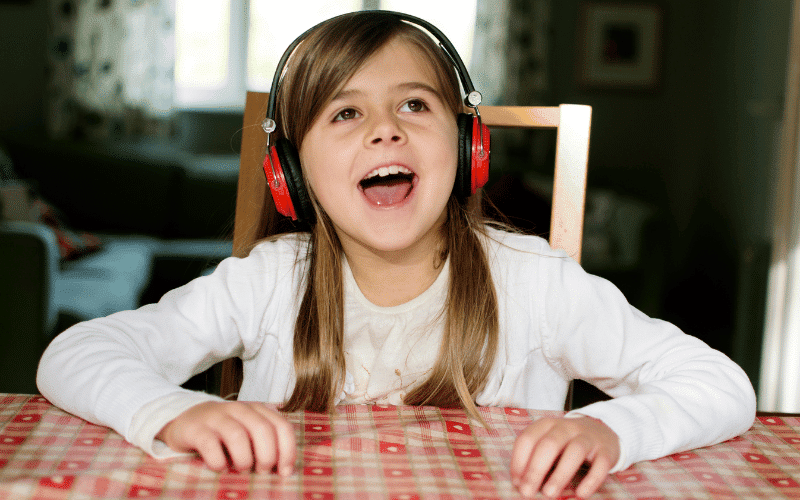10. Better Speech During Imitation or Singing: The Paradoxical Performance Phenomenon

One of the more intriguing symptoms of Childhood Apraxia of Speech is the paradoxical improvement in speech during imitation or singing. Parents and caregivers often report that their child’s speech seems clearer and more fluent when they are repeating words, phrases, or sentences that someone else has just said, or when they are singing along to a familiar song.
During imitation, children with CAS may display a higher level of speech accuracy compared to their spontaneous speech. This is possibly because the motor plans for the words or sentences are readily available and the child does not need to generate these plans themselves.
In the case of singing, the rhythmic and melodic structure of songs can provide a supportive framework that simplifies the task of motor planning. The melodic pattern of a song can help guide the child’s speech movements, and the rhythmic structure can help regulate the timing of these movements. Additionally, in singing, there’s often less emphasis on the precise articulation of sounds, which can make singing a less demanding task for children with CAS compared to regular speech.
Recognizing this symptom can be quite enlightening for parents and caregivers, and it can also inform therapeutic strategies. Speech-language pathologists can incorporate imitation and singing activities into therapy sessions, leveraging these tasks’ supportive nature to facilitate the child’s speech production.
The road to effective communication can be a long and challenging one for children with Childhood Apraxia of Speech and their families. However, by recognizing these symptoms and seeking appropriate support, these children can gradually overcome their speech difficulties and find their voice in the world. Their journey may not be easy, but with determination, perseverance, and the right help, they can certainly make meaningful strides towards their communication goals. (10)